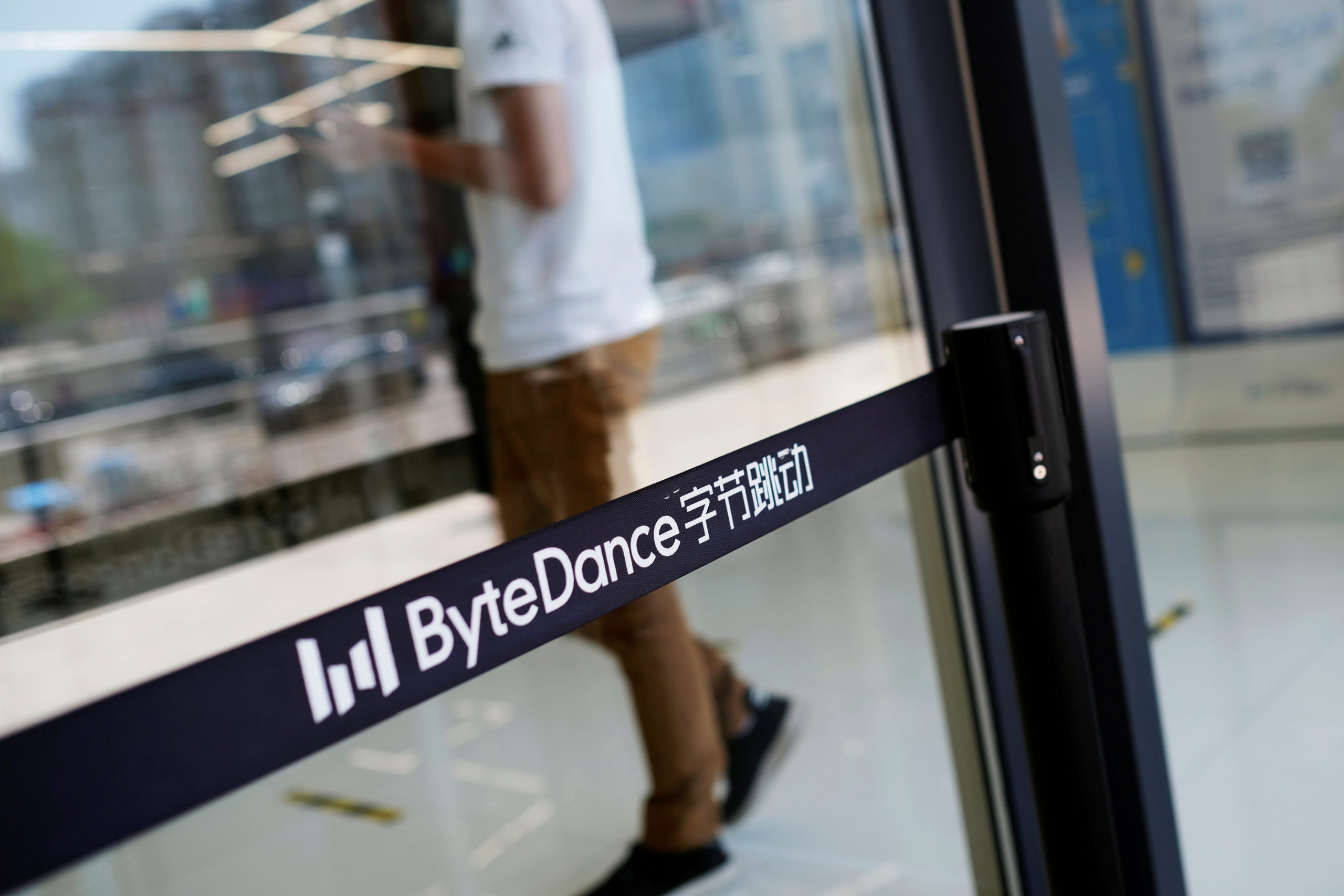The people who work for TikTok are workaholics and they want more!
ByteDance, the company behind TikTok, is famous for its workaholic culture, and many of its employees don’t want it to change despite growing calls in China for better work-life balance at tech companies.

In a gutting blow to increasingly feverish calls for a better work-life balance in China’s tech sector, a sizable portion of the workforce at ByteDance, the Chinese parent of TikTok and Douyin, has voiced opposition to a policy change proposed by the company that would discourage employees from working regularly on weekends.
The pushback was sparked by a company-wide survey about ByteDance’s big week/small week policy, which currently requires its employees to work an extra day on Sunday every two weeks. During an all-hands meeting on June 17, Liáng Rǔbō 梁汝波, the new CEO of the global tech powerhouse, disclosed (in Chinese) the results of the internal poll, which found that roughly one-third of the employees wanted to maintain the status quo, while another third of respondents were opponents of the existing policy. The rest were indifferent, Liang said.
Because the suggested policy shift failed to garner support from the majority of the workforce, Liang announced that the company would shelve the plan and conduct more research on its implications.
The mix of five-day and six-day work weeks is at the core of ByteDance’s corporate culture. While this unusual arrangement of work days is not stated in the company’s employment contracts, it was adopted since ByteDance’s founding in 2012 and has gained popularity over time among employees, who are paid double their normal daily rate when they work on weekends.
However, the tradition appears to have lost some of its appeal in recent years, as China’s overwork culture came under intense scrutiny and a growing number of Chinese internet companies were forced to have a reckoning over long hours and grueling work conditions. About two weeks ago, in a groundbreaking attempt to address employee burnout, Lightspeed and Quantum Studios (光子工作室), a Shenzhen-based video game developer owned by Chinese internet giant Tencent, unveiled a new set of policies (in Chinese) designed to prevent employees from working excessive hours and to encourage them to completely unplug from work on weekends and holidays.
Perhaps inspired by Tencent’s move, ByteDance recently asked its employees to vote via email over whether the big week/small week policy should be abolished. The internal survey was first leaked on Maimai (in Chinese), a Chinese professional networking site, and soon became a topic of discussion on Chinese social media, where support for a change was overwhelming and many called for other internet companies to follow ByteDance’s suit to reassess their workplace culture.
But now those hopes have been dashed. The results were particularly hard to swallow for ByteDance employees who voted in favor of not working on weekends anymore. In an interview with AI Caijing (in Chinese), an online publication about Chinese economics and business, an engineer at ByteDance, who described himself as a firm opponent of the big week/small week policy since he joined the company, said that he was disappointed about the way the voting turned out.
Other ByteDance workers, who asked to remain anonymous in fear of retaliation, told AI Caijing that they were unaware of the survey and therefore had doubts about whether the company had made efforts to make sure that every employee was involved in the decision-making process. “We don’t know how many people actually voted and who voted in favor of keeping the policy in place. Perhaps the company only polled those who voluntarily stayed late at their job,” one of them remarked.
Some employees love overtime
The outcome was not totally a surprise, though, given that a significant number of ByteDance employees were attracted to join the firm in the first place by overtime pay on extra working days. “Weekend work is usually less demanding than weekdays. Free meals and air-conditioning are provided when you go to the office. I see no reason for me not to make some extra money on weekends,” a ByteDance employee who works in an operational department told AI Caijing.
When talking to AI Caijing, a former ByteDance employee said that because overtime pay during six-day work weeks was included in annual salaries offered by the company, amending the policy would probably result in a 20% drop in employee incomes.
Another former employee of ByteDance, who has left the tech industry entirely in pursuit of a greater work-life balance, told the publication that although the “official rhetoric” was that working on weekends was not mandatory, employees, including herself, felt pressured to conform to what’s considered to be the norm. “It’d be weird if someone constantly avoided big weeks. In other words, if you want to work at ByteDance, you have to accept the system. There’s no room for negotiation,” she said.
According to the former employee, encouraging extreme workaholism among rank-and-file employees and rewarding those who buy into it with financial incentives and greater chances at promotion has been an essential part of ByteDance corporate culture from the start, and it has proven to be a meaningful contributor to the company’s rapid growth.
According to an internal memo released to staff last week, ByteDance’s total revenue surged by 111% to $34.3 billion in 2020. By the end of last year, the company had 1.9 billion monthly active users across all of its platforms — which include its global smash-hit short-video app TikTok, the Chinese version of Douyin, and news aggregation app Toutiao.
ByteDance isn’t the inventor of the big week/small week policy: The concept can be traced back to as early as 2006, when complaints about a similar practice at Chinese telecommunications company Huawei emerged on the Chinese internet.
But the idea didn’t fully take root in China’s tech industry until ByteDance embraced it. Vying for a ByteDance-level success, a string of Chinese internet companies decided to adopt a similar labor practice. Kuaishou, ByteDance’s main competitor in China, introduced the same big week/small week policy as ByteDance in January. Pinduoduo, a rapidly growing Chinese ecommerce company, took a step further, implementing a “super big week/small week policy” in some of its departments, where employees are sandwiched between six-day work weeks and seven-day work weeks.
On Chinese social media, ByteDance’s failure to remove the policy was seen by many as a reality check on the current state of worker activism in the country. Some said that the outcome reflected a dilemma that Chinese tech workers wrestle with: a desire to opt out of the overwork culture and their unwillingness to relinquish handsome salaries and lavish benefits in exchange for a better work-life balance.
Calling ByteDance’s poll “a performative stunt” and a “distraction from real policy change,” others argued that the onus should be on the company to improve the well-beling of its employees, rather than forcing them to make a choice between productivity and health. “Many people participate in organ trade or human trafficking at their own will. But you don’t see governments polling the public about how they feel about these issues,” a Weibo user wrote (in Chinese).






